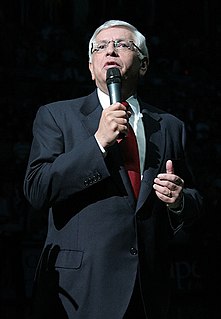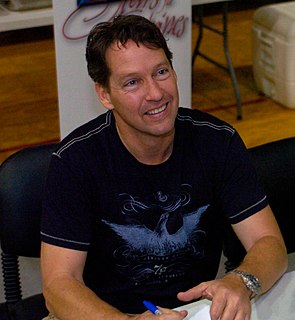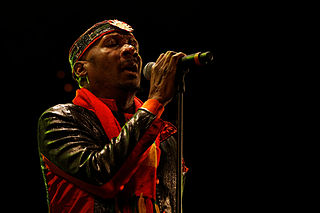A Quote by Quincy Jones
We were in the heart of the ghetto in Chicago during the Depression, and every block - it was probably the biggest black ghetto in America - every block also is the spawning ground practically for every gangster, black and white, in America too.
Related Quotes
Imagine if you had genuine, high-quality early-childhood education for every child, and suddenly every black child in America - but also every poor white child or Latino [child], but just stick with every black child in America - is getting a really good education. And they're graduating from high school at the same rates that whites are, and they are going to college at the same rates that whites are, and they are able to afford college at the same rates because the government has universal programs. So now they're all graduating.
The white American man makes the white American woman maybe not superfluous but just a little kind of decoration. Not really important to turning around the wheels of the state. Well the black American woman has never been able to feel that way. No black American man at any time in our history in the United States has been able to feel that he didn't need that black woman right against him, shoulder to shoulder-in that cotton field, on the auction block, in the ghetto, wherever.
There will be setbacks and false starts. There are many who won't agree with every decision or policy I make as president. And we know the government can't solve every problem. But I will always be honest with you about the challenges we face. I will listen to you, especially when we disagree. And, above all, I will ask you to join in the work of remaking this nation, the only way it's been done in America for 221 years -- block by block, brick by brick, calloused hand by calloused hand.
I see Americans of every party, every background, every faith who believe that we are stronger together: black, white, Latino, Asian, Native American; young, old; gay, straight; men, women, folks with disabilities, all pledging allegiance under the same proud flag to this big, bold country that we love. That's what I see. That's the America I know!
I went to this arts high school in Greenville, S.C. In speech class, the teacher, a white man, would say, 'You're talking ghetto. Don't talk ghetto.' I'm not only offended, but I'm confused because while there's nothing wrong with people who come from the projects or the ghetto, that's actually not my experience.
Black History is enjoying the life of our ancestors who paved the way for every African-American. No matter what color you are, the history of Blacks affected everyone; that's why we should cherish and respect Black history. Black history changed America and is continuing to change and shape our country. Black history is about everyone coming together to better themselves and America. Black history is being comfortable in your own skin no matter what color you are. Black history makes me proud of where I came from and where I am going in life.
Constance L. Rice, co-director of the Los Angeles of the Advancement Project, told the Times that Seltzer might have been influenced by David Simon's fake ghetto series, "The Wire." It figures. Isn't this sexism? Isn't this a double standard? They're hard on this young woman for her fake ghetto book, yet praise these White guys for theirs. So there's a big market in downing Black men.
The strange thing about my life is that I came to America at about the time when racial attitudes were changing. This was a big help to me. Also, the people who were most cruel to me when I first came to America were black Americans. They made absolute fun of the way I talked, the way I dressed. I couldn't dance. The people who were most kind and loving to me were white people. So what can one make of that? Perhaps it was a coincidence that all the people who found me strange were black and all the people who didn't were white.
































